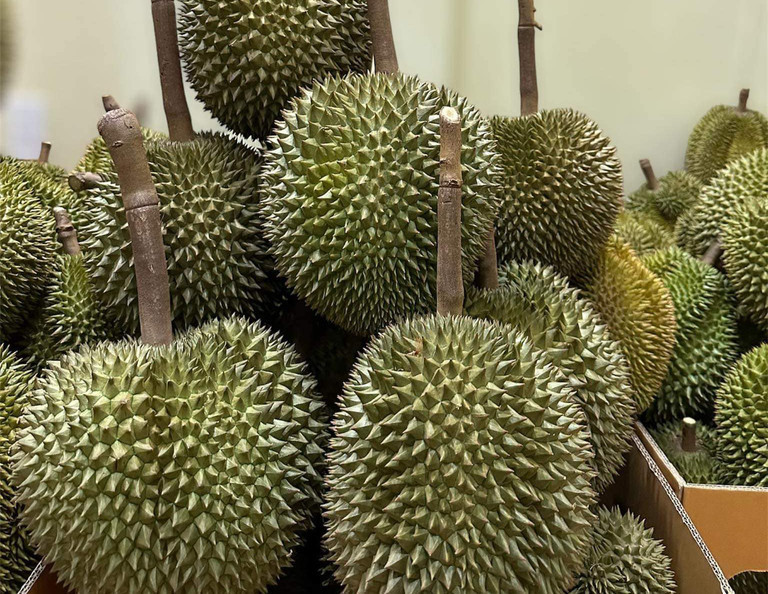
China has recently discovered traces of Auramine O, a cancer-causing chemical, in Thai durians, prompting stricter import regulations that have also affected Vietnamese durian exports. Some Vietnamese exporters have even been forced to halt shipments as a result.
In 2024, Vietnam's durian export revenue reached nearly $3.3 billion, a significant increase of over $1 billion compared to 2023, and almost eight times higher than in 2022. China accounted for more than 90% of Vietnam's total durian export turnover.
Some Vietnamese companies regularly export hundreds to thousands of tons of durians to China each month. However, recent heightened inspections for Auramine O have disrupted this thriving trade.
A Vietnamese enterprise had to return 170 tons of durians from the border as they lacked the required certification confirming the absence of Auramine O.
Auramine O, also known as Basic Yellow 2 (BY2), is commonly used as an industrial dye. Scientific evidence has shown that this chemical poses cancer risks to both humans and animals.
The Chinese General Administration of Customs (GACC) found Auramine O residues in Thai durians at the end of 2024. Subsequently, on January 10, China introduced stricter measures requiring imported durians to provide certification for Auramine O, in addition to cadmium testing.
Following the detection, hundreds of containers of Thai durians were blocked at the Nakhon Phanom border checkpoint. In response, Thailand's Ministry of Agriculture and Cooperatives initiated negotiations with GACC to resolve the issue.
On January 17, China resumed imports of Thai durians after approving six laboratories capable of testing for Auramine O residues.
Impact on Vietnamese durian exports
According to Dang Phuc Nguyen, General Secretary of the Vietnam Fruit and Vegetable Association, Chinese customs authorities have expressed concerns that Auramine O contamination could penetrate the durian flesh, requiring thorough testing of both the outer shell and inner pulp.
China also cautioned that rejected fresh durians should not be processed into frozen products, as these will face the same stringent inspections.
With China inspecting 100% of imported shipments, clearance now takes up to a week, significantly disrupting Vietnam’s durian export activities.
To address these challenges, the Vietnam Fruit and Vegetable Association has urged local authorities to establish certified testing laboratories to ensure compliance with China's new regulations. The association has also called for clear guidance on obtaining Auramine O certifications to prevent further delays in exports.
Tam An